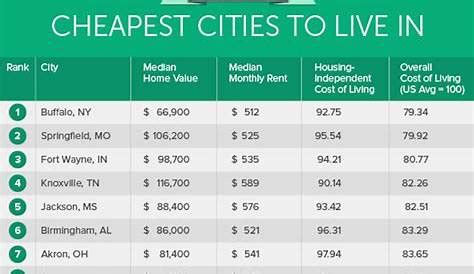The Allure of Early Employment

At the tender age of 14, the prospect of earning one’s own money and gaining valuable work experience can be incredibly alluring. However, navigating the complexities of the job market at such a young age can be daunting. This guide aims to demystify the process, providing young job seekers with a roadmap to success.
Legal Considerations
Before embarking on the job search, it’s crucial to understand the legal restrictions that govern youth employment. In most jurisdictions, the minimum age for employment is 14 or 15, and specific restrictions apply to the types of jobs that young people can hold. These restrictions vary by location, so it’s essential to consult local labor laws for precise guidance.
Getting Started: Finding a Job
1. Explore your Interests and Skills
Identify activities and subjects that you enjoy and excel in. This can help you narrow down potential job opportunities that align with your strengths.
2. Network and Ask for Referrals
Talk to family, friends, and teachers about possible job openings. Attend local job fairs and networking events to connect with potential employers.
3. Leverage Online Job Boards
Many online job boards cater to youth employment, such as Indeed, Snagajob, and CareerBuilder. Create a strong resume and profile to showcase your skills and experience.
Where to Look: Common Job Options for 14-Year-Olds
1. Retail
- Cashier
- Sales associate
- Stocker
2. Food Service
- Waiter/waitress
- Hostess
- Dishwasher
3. Customer Service
- Receptionist
- Call center agent
- Retail customer service
4. Clerical
- Office assistant
- Data entry clerk
- File clerk
5. Outdoor Work
- Landscaping
- Car washing
- Lawn mowing
Benefits of Early Employment
- Financial independence: Earning your own money provides a sense of accomplishment and teaches financial responsibility.
- Skill development: Jobs offer opportunities to develop your communication, problem-solving, and teamwork skills.
- Resume building: Work experience adds credibility to your resume and makes you a more competitive job applicant in the future.
- Socialization: Interacting with colleagues and customers can enhance your social skills and build your network.
- Exploration of career interests: Early employment allows you to explore different industries and occupations, helping you make informed decisions about your future career path.
Balancing Work and School
Combining work and school can be challenging but not impossible. It’s essential to establish a healthy balance that prioritizes your academic obligations.
1. Set a Schedule and Stick to It
Establish a clear schedule that includes time for schoolwork, work, and leisure. Stick to this schedule as much as possible.
2. Prioritize Homework
Schoolwork should always come first. Make sure to complete all assignments and study for tests before focusing on your job responsibilities.
3. Communicate with Your Employer
Inform your employer about your school schedule and request accommodations if necessary. Most employers are understanding of student needs.
Additional Tips for Success
- Dress professionally: First impressions matter, so always dress appropriately for work.
- Be punctual: Arriving on time for work shows respect for your employer and colleagues.
- Be a team player: Work cooperatively with others and contribute to the overall team effort.
- Ask for help: Don’t be afraid to ask for assistance when needed. Supervisors and coworkers are there to support you.
- Stay positive: A positive attitude can go a long way in the workplace.
Table 1: Pros and Cons of Working at 14
| Pros | Cons |
|---|---|
| Gain valuable work experience | Potential conflict with schoolwork and social life |
| Develop new skills and talents | Time away from friends and family |
| Earn your own money | Physical and emotional demands of some jobs |
| Enhance your resume | May limit participation in extracurricular activities |
Table 2: Common Job Options for 14-Year-Olds
| Job Title | Typical Responsibilities |
|---|---|
| Cashier | Operate cash register, handle customer transactions, maintain cleanliness |
| Sales associate | Assist customers, answer questions, promote products |
| Waiter/waitress | Take orders, serve food and beverages, clear tables |
| Office assistant | Answer phones, greet visitors, perform general office tasks |
| Landscaping | Mow lawns, trim hedges, plant trees |
Table 3: Tips for Balancing Work and School
| Tip | How to Implement |
|---|---|
| Set a schedule | Create a daily or weekly schedule that includes time for schoolwork, work, and leisure. |
| Prioritize homework | Complete all assignments and study for tests before working. |
| Communicate with your employer | Inform your employer about your school schedule and request accommodations if necessary. |
| Seek support | Ask for help from teachers, parents, or friends when needed. |
Table 4: Additional Tips for Success in the Workplace
| Tip | How to Implement |
|---|---|
| Dress professionally | Wear clean, appropriate clothing to work. |
| Be punctual | Arrive on time for your shifts and meetings. |
| Be a team player | Work cooperatively with others and contribute to the overall team effort. |
| Ask for help | Don’t be afraid to ask for assistance from supervisors or colleagues. |
| Stay positive | Maintain a positive attitude and take pride in your work. |
Conclusion
Working at 14 can be a rewarding experience that provides valuable benefits for your personal and professional development. By carefully considering your interests, skills, and legal restrictions, you can find a job that aligns with your goals and enhances your future prospects. Remember to prioritize your education, balance your responsibilities, and maintain a positive attitude. With dedication and perseverance, you can succeed in your first job and lay the foundation for a successful career.
